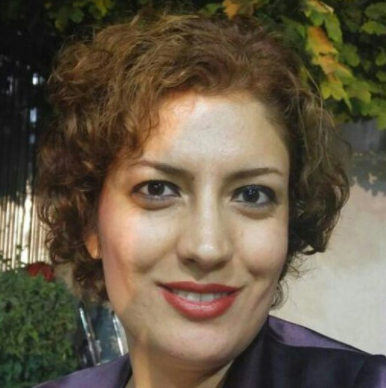Source: www.iranwire.com
By Kian Sabeti
Translation by Iran Press Watch

Ms. Nikouseresht told “Iranwire”: “After the end of the class on Wednesday, 28 December, I went to the university website to check my status, and I noticed that, there was nothing on my course list. My classes had been designated at the beginning of the semester, and I was attending them. I assumed there was a problem, and went to the head of the Office of Academic Affairs of the Department. He told me that, the reason for removing my course list was a letter that had been sent from the Director of the University Academic Affairs to the Department of Literature and Human Sciences three days before, to stop my education in the University.”
This letter, signed by Shiraz University’s director of Academic Affairs, Dr. Mohammad Ali Masnadi Shirazi (the director general of the central committee for selection of students), state that Nazanin Nikouseresht should be prohibited from continuing her education.
To follow up the matter, Ms. Nikouseresht went to the University officials, who told her the following: “In a letter, dated 12 December 2016, the committee for selection of professors and students had conveyed to the President of Shiraz University that, six students had to be expelled from that university, and one of them being Nazanin Nikouseresht.” The letter had mentioned that, these students had to be prohibited from education, due to their lack of general competency. Mr. Manouchehri told Ms. Nikouseresht that, as the official only execute the task, she would have to go to the Committee for Selection of Professors and Students in Tehran for any follow-up. Ms. Nikouseresht was told that she would not be allowed a copy of the letter because because the names of the other five students are also mentioned in it.
Ms. Nikouseresht is one of 129 Bahá’í citizens who were informed of having an “Incomplete File” at the time of registration in August 2016. Ms. Nikouseresht reported that she was able to register and start her education, despite an Incomplete File, stating: “Even though the website of the Educational Measurement and Evaluation Board indicated that I was prohibited from university education due to an Incomplete File, I was quite eager to know the result of the entrance exam and the university I had been admitted to. I went to the Educational Measurement and Evaluation Board a number of times, and they did not respond to me. As a result, I went to the university which was my first choice, meaning Shiraz University, and realized that my name was on the list of newly-admitted students. I joyously registered with English Literature as my major, the same as other newly accepted students. I selected my courses, obtained my student identification card and number and started classes with other students in the month of September, until on December 28th, I realized my courses had been dropped.”
On the website of the Educational Measurement and Evaluation Board, Bahá’í students are given with an “Incomplete File” message on their status page, and are unable to see the results of their exams. The names of these individuals are sent to the respective universities: “Using this method, Educational Measurement and Evaluation Board hides the entrance exam results from admitted Bahá’í students, and prevents their registration and education. On the other hand, the Board can claim that, the Bahá’í citizens are admitted into universities and higher education institutions, same as others, and that the names of admitted Bahá’í students exist in university records, so that it can prevent them from continuing their education.”
Ms. Nikouseresht reports: “However, this year Payame-Noor University sent a message to those admitted, to contact them for registration. This message was also sent to the Bahá’í applicants of this university who had faced an “Incomplete File” message, which indicates that, the subject university had not been aware of denial of education for Bahá’ís.”
Leave a Reply